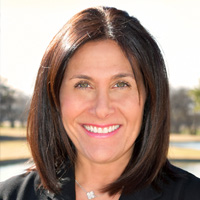As part of our “Love Essentially” series, Jackie Pilossoph helps us navigate the complex world of relationships. Have a question that you would like her to answer? Contact her here, and it may be featured in an upcoming article!
Dropping off a child at college for the first time is extremely emotional and difficult for most parents. But you know what’s even harder? When that child comes home for the holidays.
Suddenly, the life you’ve gotten used to is completely disrupted (again), and you find yourself living with a person who thinks it’s OK to stay out really late, sleep till 1pm, and basically go about his or her college lifestyle in your home.
If you haven’t figured it out by now, this is personal for me. I love my 19-year-old son with all my heart and I’m delighted to see him and have him home, but he’s driving me crazy! How do parents set boundaries for a young adult while still letting that person grow up?

Dan Rizzardini is a North Shore based therapist who works primarily with couples and families. The Licensed Professional Counselor not only hears about these issues from clients, but as a father of two, personally experienced this challenge several years ago.
“The first thing that struck me as a parent was that they had changed more,” said Rizzardini, whose sons are now 30 and 32. “I thought, ‘How do I figure this change part out? Do I like the changes? Am I proud of them in certain ways? Are there some habits they’ve assimilated from college that I don’t particularly like? What do I do about it?’”
According to Rizzardini, when it comes to college-aged kids, it’s time to face up to this fact: you now have an adult.
“They’ve been away and living on their own for several weeks or months, and they’re now used to their freedom and making their own decisions,” said Rizzardini, who holds a Masters of Science in clinical psychology. “So, when they get home, you are reestablishing your relationship with your child as an adult, and that reestablishment will carry on with you for the rest of your life.”

What specifically does reestablishing your relationship mean? Some heart-to-heart conversations about how life is going to be while your kids are living under your roof.
“Your overall goal as a parent should be to move on into their adult life, which includes being able to communicate, and carving out what kind of role you will play,” Rizzardini said. “It’s important to work together and compromise on the issues that are important to them and issues that are important to you.”
Examples of house rules you might want to discuss include: using the family car, spending time with family versus being out with friends, adhering to a curfew, avoiding disturbing other family members’ sleep when coming home late at night, helping around the house with laundry, dishes, and more, being mindful of loudly playing video games, and using Mom or Dad’s credit card.

Then there’s COVID safety. Now that the child is home, he or she might be upping your risk of getting sick if they’re out and about socializing.
“My advice is to approach the kid in a consultative fashion,” Rizzardini said. “Say something like, ‘I’ve been trying really hard to remain healthy and not get COVID. I’ve been careful about being exposed. How do you think you can help me ensure that I continue to do this?’”
Rizzardini said all the discussions you have with your college kid should involve compromise, and that as a parent, it’s best to take the high road.
He said to give in on a few things you can live with, and then pick things to stand firm on, especially when it comes to safety. For example, leaving the house on a freezing cold night wearing a sweatshirt isn’t something to argue about, but if the kid is going to a big party where COVID is a risk, you might want to put your foot down.
“You can’t stop a young person from going out. They might say, ‘I don’t care what you think,’ or they might sneak out,” Rizzardini said. “If they are over 18, there’s not a lot you can do, so do you really want to make it a battle? Any effort a parent makes to regulate their behavior at this age is an instant disagreement.”
But, that doesn’t mean letting your child do whatever he or she wants. Rizzardini recommends finding middle ground, being supportive, encouraging the kid to make good decisions, and having faith in him or her.
“You could say something like, ‘Have a good time. I know you have good judgement, but please make responsible decisions that don’t endanger you or anyone else,’” said Rizzardini.

The bottom line is pretty simple: parents of college age kids need to learn how to let go a little bit and let their kids grow up. That includes this columnist, who is working to get there.
Rizzardini did say that there is a part of the college kid who still appreciates and even wants you to care. In other words, he or she might be an adult, but that person is still a kid, too; a kid who needs you.
“You want to develop a good cooperative relationship with them right now, as an adult, so that they aren’t afraid to come back and visit, so that they want to come back, and so they say, ‘I like going home,’ he said. “College kids are still developing in so many ways—their beliefs, values, career choices and the way they view their parents. So, don’t judge unless it’s a safety issue.”
The funny thing is, now that my son and I are sorting all these things out, it’s probably going to be hard when he goes back to school. Another lifestyle adjustment. More change. Missing him again.
But Rizzardini’s right. I want my kids to want to come see me. I want them to look forward to sleeping in their own beds, to having me cook for them, and to spending time together. Arguing and making a kid feel like you don’t trust them or have faith in their ability to make good choices is a one-way ticket to alienation.
There will always be boundaries, of course. No kid should be making the rules. But loving a child for who he or she is, letting them learn things their own way, and being there for those times they could really use a good talk or a hug seems to be the way to go. After all, home is where the heart is, and a kid who feels free will follow his or her heart, don’t you think?
More From Better:
- It’s Glow Time in Chicago: Watch the Star-Studded 2020 BMO Harris Magnificent Mile Lights Festival at Home
- Find the Perfect, Luxurious Gift at Loro Piana and Your Holiday Shopping Purchase Will Support Local Nonprofits
- Mariano’s to Offer Rapid Covid-19 Antibody Testing

Jackie Pilossoph is a former television journalist and newspaper features reporter. The author of four novels and the writer of her weekly relationship column, Love Essentially, Pilossoph is also the creator of the divorce support website, Divorced Girl Smiling. Pilossoph holds a Masters degree in journalism and lives in Chicago with her two teenagers.
